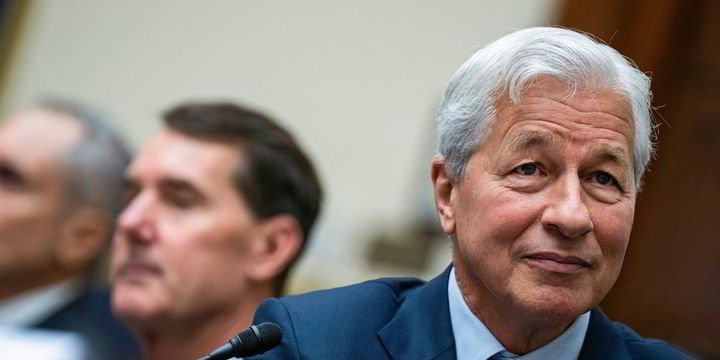One of the world’s highest-profile bankers – JP Morgan Chase CEO Jamie Dimon – said the US government should consider seizing private property to boost the number of green energy projects coming through the pipeline.
Dimon told the bank’s shareholders that availability of wind and solar projects needs to be accelerated urgently as “the window for action to avert the costliest impacts of global climate change is closing”.
The Wall Street titan told JP Morgan’s investors in the bank’s annual report: “Massive global investment in clean energy technologies must be done and must continue to grow year-over-year.
“At the same time, permitting reforms are desperately needed to allow investment to be done in any kind of timely way. We may even need to evoke eminent domain – we simply are not getting the adequate investments fast enough for grid, solar, wind and pipeline initiatives.”
‘Eminent domain’ is the right invoked by governments to take over assets for overriding public priorities, with due compensation to their owners.
Dimon’s call reflects a growing clamour around permitting of green power projects as a top-tier barrier to energy transition progress alongside other key hurdles such as grid infrastructure.
Article continues below the advert
While compulsory purchase powers are already used in various markets, some renewable energy advocates are calling for governments to get tougher in sweeping away legal and regulatory obstacles that can keep major projects tied up for years.
The issue of speeding up consent for projects is on the agenda at the highest level in both the US and EU.
A group of American clean energy groups recently said “the single biggest obstacle to building the infrastructure of the future is a broken permitting system” as they called for urgent legislative action.
The prospect of large-scale compulsory seizure of land for wind projects was recently highlighted in future energy scenarios presented by oil giant Shellas a possible necessity for an accelerated push to net zero.
While Dimon’s comments are likely to find sympathy among some in the clean energy community, JP Morgan Chase is not immune from criticism over its own climate record.
US activist coalition Stop the Money Pipeline in January applauded the filing of shareholder resolutions at the bank and other major US institutions over their role in financing fossil projects.
Michael Esealuka, Louisiana organiser with campaign group Healthy Gulf, said: “Every year we face worsening hurricanes, freezes and floods. Big banks are directly fueling this crisis by financing a massive expansion of petrochemical plants and gas exports in our communities.
“Bank CEOs like Brian Moynihan, David Solomon and Jamie Dimon made climate commitments — that should mean something. Instead they profit off climate chaos as the Gulf South is made into a sacrifice zone for fossil fuels.”

